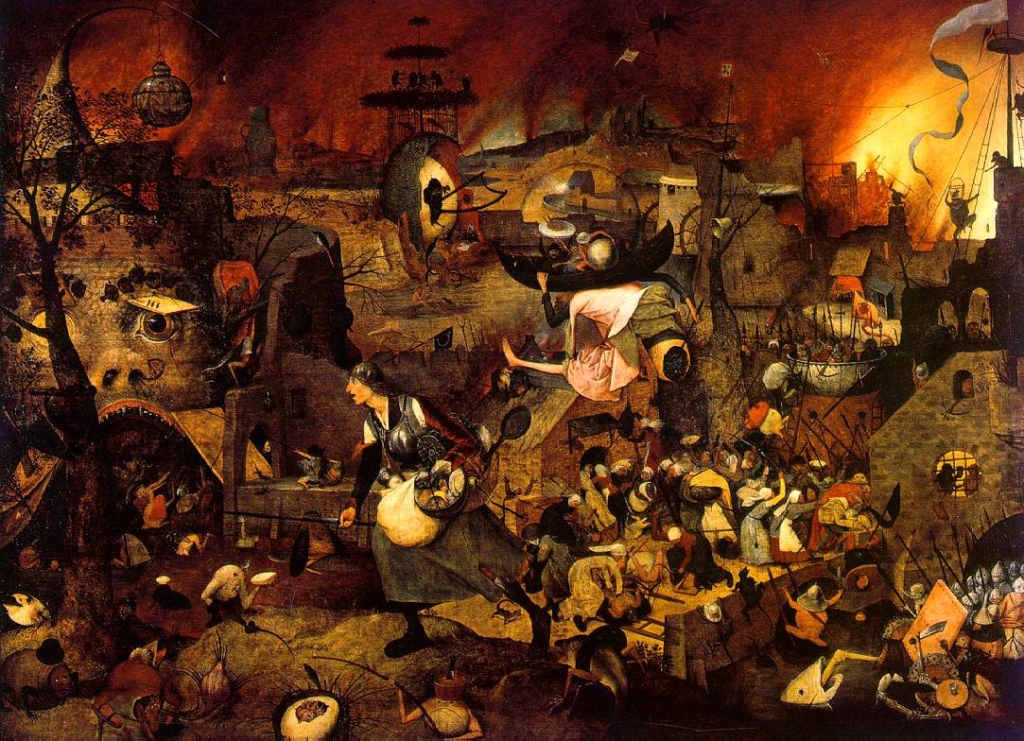War Is Hell

War Is Hell
Brian Zahnd
At that very time there were some present who told him about the Galileans whose blood Pilate had mingled with their sacrifices. He asked them, “Do you think that because these Galileans suffered in this way they were worse sinners than all other Galileans? No, I tell you; but unless you repent, you will all perish as they did. Or those eighteen who were killed when the tower of Siloam fell on them—do you think that they were worse offenders than all the others living in Jerusalem? No, I tell you; but unless you repent, you will all perish just as they did.”
—Luke 13:1-5
One of the themes of Jesus’ prophetic ministry that becomes more and more prominent the closer he gets to Jerusalem is his dire warning about the impending fate of Jerusalem. In our Gospel reading for this Sunday, Jesus is informed about some Galilean pilgrims who were probably involved in a political uprising against the Roman occupation and were subsequently put to death by Roman soldiers in the Temple complex — thus mingling their blood with the sacrifices. Jesus’ response is to tell them not to imagine that these Galilean victims were worse sinners than any other Galileans. Instead, Jesus says if they don’t rethink their intentions they will all perish in the same way. Jesus then brings up an incident of a recent building collapse in Jerusalem that had resulted in eighteen fatalities and comments on it by saying, “Do you think that they were more blameworthy than all the others living in Jerusalem? No, I tell you! Unless you repent, you will all be destroyed in the same way.”
What is Jesus saying? Is he talking about Galileans and Judeans going to hell? Yes and no. Jesus isn’t talking about a postmortem spiritual hell, but an impending literal hell. Jesus has been calling Jerusalem into the kingdom of God and the way of peace by the practice of enemy love and radical forgiveness. But for the most part Jerusalem has rejected this message of peace, believing instead that when the time comes God will fight with them in a war of independence and help them attain freedom by killing their enemies. In response to this enormously dangerous holy war assumption, Jesus warns Jerusalem against resorting to violence by telling them that if they don’t rethink war and peace according to the kingdom of God, they’re all going to die by Roman swords and collapsing buildings.
And this is exactly what happened a generation later. After four years of violent revolution led by a cadre of false messiahs claiming that God was about to give Israel victory over Rome, General Titus and the Roman Tenth Legion marched on Jerusalem. On August 4, AD 70, after a brutal five-month siege, the Romans launched their final assault. Hell had come to the holy city. Buildings collapsed from the bombardment of catapult stones (the hundred-pound hailstones of the Apocalypse), the city was set ablaze, and hundreds of thousands of Jerusalem’s citizens were killed by Roman swords. In the end Jerusalem was reduced to a smoldering Gehenna — the garbage dump where the fires are never quenched and the maggots never die. This was when Jerusalem went to hell.
In the 21st century, the devil still tells big lies. In an age of nuclear, chemical, and biological weapons capable of eradicating all human life, the way of war is still foolishly romanticized and deemed a legitimate way to shape the world. But Lent is a time to repent, to rethink, to reimagine. Today let us heed the warning of Jesus and remember that there is no way to peace…peace is the way.
Lord Jesus, save us from our diabolical fascination with the ways of war. Help us by the Holy Spirit to imagine creative ways to wage peace. Amen.
BZ
This is an excerpt from my Lenten devotional, The Unvarnished Jesus.
(Artwork is Mad Meg by Pieter Bruegel the Elder, 1553)